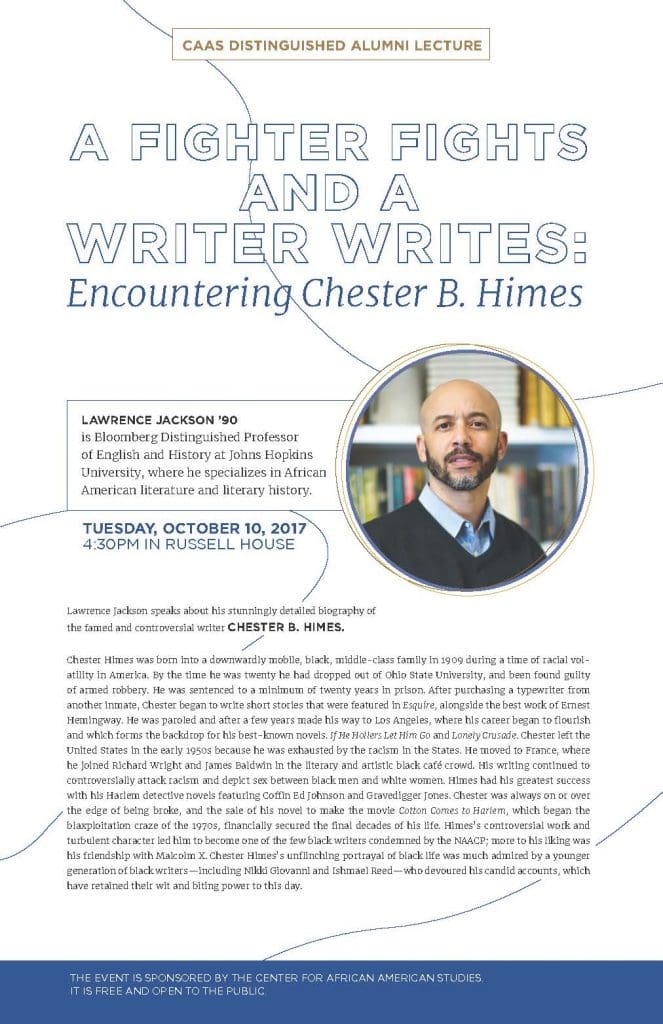The CAAS Distinguished Alumni Lecture presents Lawrence Jackson, a Bloomberg Distinguished Professor of English and History, Tuesday, Oct. 10 at 4:30 p.m. in Russell House. Lawrence Jackson, who specializes in African American literature and literary history, will speak about his stunningly detailed biography of the famed and controversial writer Chester B. Himes.
Chester Himes was born into a downwardly mobile, black, middle-class family in 1909 during a time of racial volatility in America. By the time he was twenty he had dropped out of Ohio State University, and been found guilty of armed robbery. He was sentenced to a minimum of twenty years in prison. After purchasing a typewriter from another inmate, Chester began to write short stories that were featured in Esquire, alongside the best work of Ernest Hemingway. He was paroled and after a few years made his way to Los Angeles, where his career began to flourish and which forms the backdrop for his best-known novels. If He Hollers Let Him Go and Lonely Crusade. Chester left the United States in the early 1950s because he was exhausted by the racism in the States. He moved to France, where he joined Richard Wright and James Baldwin in the literary and artistic black café crowd. His writing continued to controversially attack racism and depict sex between black men and white women. Himes had his greatest success with his Harlem detective novels featuring Coffin Ed Johnson and Gravedigger Jones. Chester was always on or over the edge of being broke, and the sale of his novel to make the movie Cotton Comes to Harlem, which began the blaxploitation craze of the 1970s, financially secured the final decades of his life. Himes’s controversial work and turbulent character led him to become one of the few black writers condemned by the NAACP; more to his liking was his friendship with Malcolm X. Chester Himes’s unflinching portrayal of black life was much admired by a younger generation of black writers—including Nikki Giovanni and Ishmael Reed—who devoured his candid accounts, which have retained their wit and biting power to this day.
The event is sponsored by the Center for African American Studies. It is free and open to the public.

